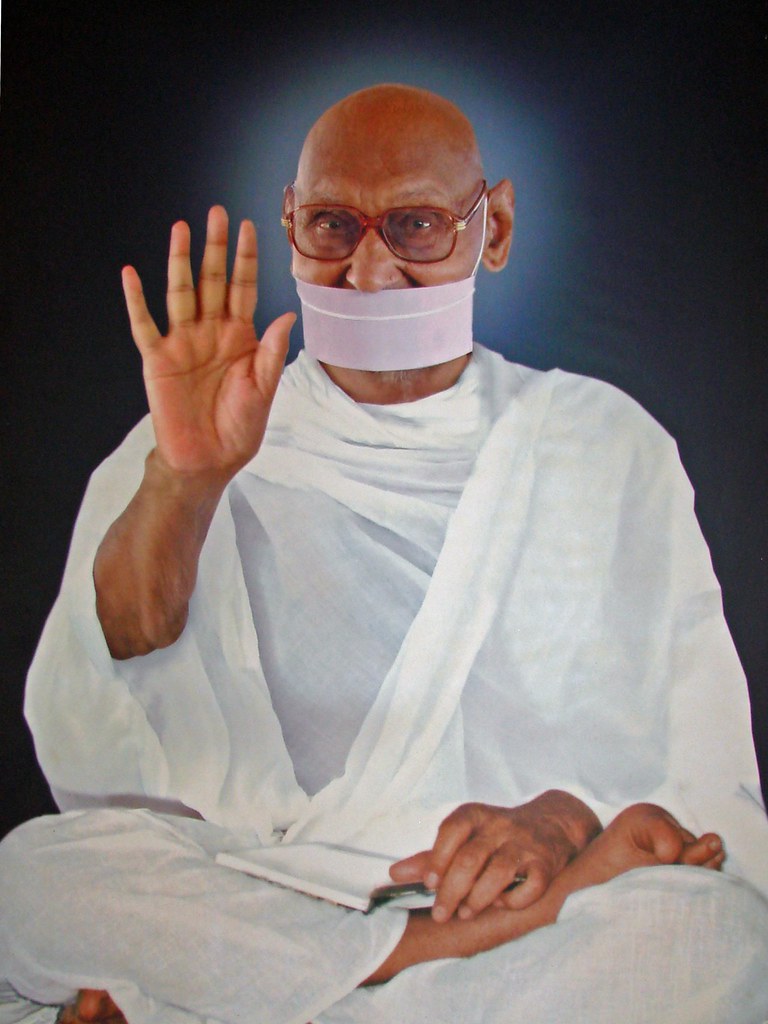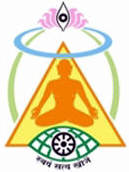
Self-Management

Observing others and learning about them is one of our natural habits, thanks to our sense organs. On the other hand the main aim of meditation is self-discovery. It may be called self-management. Comparing the spiritual term self-management and the modern western concept of personal management, we find that our ancient spiritual thinking is being expressed in a new context using new phraseology.
Who am I?
The first topic in self-management concerns the drawing of one's life map. Its underlying principle is, 'Who am I?' Maharshi Ramana used to repeat it very often. It reminds us of the first lesson of Mahavira's Acharang Sutra-Who am I? Where do I have to go from here? The same truth has been expressed differently in a different context. No thinking or system is possible by keeping oneself out altogether. Self-observation is an imperative. Behind all success - industrial, political, religious - lies self-observation.
Examine Your Decisions/Beliefs/Opinions
The second principle of self-management is studying one's decisions. Man conducts himself on the basis of his beliefs. He believes/decides that one things is good while another is bad and acts accordingly. Judging the individual facing us is not easy. But if one has already formed an opinion either about oneself or others, all behaviour will be guided by that opinion. Opinion/belief becomes a testing criterion in viewing others and ourselves.
By the Beliefs Of Others
The third principle of self-management is viewing through other's beliefs. It is a difficult task. Going by others' opinions, an individual either boosts his ego or feels condemned, depending on whether he receives praise or criticism.
Do Not Be A Puppet
Man is guided too often by the ideas of other people. Therefore, spirituality requires us not to become puppets of anyone, but to undertake introspection. We should decide our own destiny, not let others decide it for us. Provided a man is capable of healthy thinking with a healthy mind, he can know better about himself than what others think about him. People form opinions about others guided by their own interests and intentions and so they are more likely than not biased. Therefore relying on self-analysis or introspection and retaining self-confidence are essential for achieving success.
Developing Competence
A very important principle of self-management is developing one's competence. See all that there is in you-strong as well as weak points. Do not regard yourself either inferior or superior. Have a correct appraisal of facts and then develop your competence, will-power, imagination, cognition, memory and insight. All these things are related to preksha dhyan.
Dhyan
According to prekshadhyan, one should develop imagination, but should not abuse it. Power is certainly developed, but if wasted, its development is neutralized. Choose the right time for the right work. If imagination intrudes into cogitation, the latter will become useless. If imagination intrudes into eating, both will lose their quality. Thanam Sutra says: Only one thing at a time. Let the mind concentrate on one thing at a time. The skill to plan and manage in the above way is best acquired through meditation. Practise to do one and only one thing at a time
This Indeed is Sadhana
A great Sadhaka was asked about the nature of his practice.
He said, 'Mine is very simple spiritual practice'.
'What is it?'
'It lies in my eating when hungry and sleeping when I feel like going to bed.'
'Is this all that you practise?'
'Yes'.
He remarked, ‘this is rather simple. I heard it was extremely difficult. I also do what you are doing.'
'Undoubtedly this is spiritual practice'.
Then the Sadhaka invited the questioner to dinner. Both ate together. After dinner was over, the sadhaka asked, 'What else did you do along with eating?'
'Oh, I did a lot of thinking. In fact, I have decided the whole week's schedule.'
'In that case you did not really eat. Your mind was elsewhere - planning the weekly schedule. What really happened was that your physical body performed a mechanical activity.'
'How about you?'
"I simply ate, and was conscious of the process of eating and nothing else.''It will be seen that for a spiritual practitioner, even eating is a dedicated action. This is what dhyan is all about.Only what one is doing should figure in the mind.The word 'only' is important here.Once it is understood,the important principle of meditation or dhyan will be fully internalized.
What makes us busy is not the work we have taken in hand, but the useless mental going-ons accompanying the work. All of them affect work and work suffers.
The Problem of Forgetfulness
One of the big problems today is the weakening of memory. We know of young students having a worse memory than that of some octogenerians. The reason lies in the obstructions to remembering things, which weaken and impair memory. If the emphasis on 'only' referred to above is fully understood, the problem of poor memory will disappear.
Self Planning
One of the principles of management is self-planning or living an orderly and systematic life. It is of the highest importance. In the absence of proper ordering, our energy gets dissipated. The disciple has to plan where he will concentrate his energy - on serving the guru or on deep study. Lord Mahavira laid down a code of conduct comprising twelve vows, for the householder. That code is in reality a code of self-planning. One element of self-management is 'managing your needs'. It was on this basis that Mahavira gave his code. Acquiring wealth is essential. So are food, water, clothing, and shelter. But along with them, proper ordering of one's needs is also essential. We mistake all our needs as necessities? A little reflection will severely limit our needs. If a man has requisite competence, he should be able to limit his needs.
Wherein lies the worry?
Greatly misleading arguments are given in favor of acquiring wealth. It is said that a factory owner has to do it, else how will he give employment to a large number of workers? However, this is a specious argument. And this idea has lured people and also mis-guided them. In reality, every individual has his task to carry out. Our Prime Minister gave a new direction to the Panchsheel programme. The five-point program of Panchsheel has been freshly defined. The main thrust of it is on rural development. Gandhiji said that every person must have his own work to do. Spinning was not an absolutely new discovery. But the most important point was that every person must have the means to earn his livelihood or satisfy his basic needs. Man cannot live without bread.
Gandhiji made the spinning wheel the symbol of individual labour and self-employment. Unfortunately the lesson has not yet been understood. The plain fact is that if the motive behind opening huge factories was to provide a living to large numbers of people, why are mechanization and nationalization, including computerization and use of robots being increasingly introduced, for they do just the opposite of the proclaimed aim-they result in large-scale redundancies and retrenchment. All these things are done for self-aggrandizement and personal glory.
Is the World a Bazaar or a Family?
Limiting necessities means their reduction Mahavira said-Do not snatch someone's livelihood. At that time, it was a very important pronouncement. The livelihood of others should not be snatched, since no one else has a right to it. Such a discipline is inner, not legal. It is self-organization. Again, Mahavira said - Develop your intuition and examine your behaviour towards others and find out how it is affecting them. Many principles have been incorporated in self-management, but perhaps self-organization is the most important of them. Plan and regulate your necessities, activities and behaviour. Our biggest problem today is that we do not properly organize or regulate them. Today desires and needs are uncontrolled and unorganized. It is for this reason that a price can be set on people. I liked a remark of Shri Atal Behari Vajpayi very much. He said,'For America, the whole world is a bazaar, for us it is a family.' This family feeling or kinship is reflected in self-organization in the belief that the other person is also like me. I should so organize or regulate my needs, desires, expectations and activities that others are not harmed by them and my attitude remains free from cruelty.
Planning and Regulation by a Pure Mind
One of the avowed principles of prekshadhyan is the purity of the mind. Right planning, organization or regulation is possible only by a mind that is pure. The history of industry, business and administration is replete with instances of fraud and deceit. Ditching a partner by betraying his trust is a familiar phenomenon in trade and industry. All such frauds are the direct result of lack of purity of mind. We should organize with a pure mind. It includes organization of our behaviour, our activities and also our time.
Organization of Communication
Another element of self-management is planning and organization of communication. Reaching out to others is an art. The quality of a man's communication is reflected in his behaviour.
Round about Way
Whatever has been said above leads to but one conclusion. The roads may be different; the destination is one and the same, viz. the soul. One who has succeeded in understanding spirituality will automatically learn the art of self-management. In the absence of the above understanding one will have to resort to a round about way (dravidi pranayam). Things become easy when we do right thinking.
The Ultimate Goal
Timely thinking and taking a decision is very difficulty. It is possible only by looking inward. The main principle of prekshadhyan has been the development of insight. The same is the case with the development of imagination. Both thinking and imagining need controlling. Our ultimate aim is to reach a state of mind free from all cogitation. The practitioner of dhyan has also to organise himself in order to get success. Dhyan results in failure in the absence of self-organization or control.
Western scholars have not talked of self-management in the context of spirituality. Self-management came into being to help people earn success in organizing industries. But self-management is in reality the means of achieving a distant goal. Therefore, people undertaking dhyan should simultaneously understand the principles of self-management. They should learn how to organize all the energy they have and also the different stages of life.
An Important Principle
Childhood, youth, middle age and old age are four stages of life. The fifth stage is death. There has to be proper planning for all these stages. The experiences of childhood should be made use of at twenty. Those of youth should be made use of at fifty. Young people have enough strength to sit down and meditate for two hours at a stretch. May be it is not possible at seventy. Therefore, planning for the seventies and beyond should be done while one is young. Yoga calls for developing a few powers - Tratak (gazing fixedly at an object) and Kundalini (divine cosmic energy) etc. These are best developed during youth, because in old age, cells degenerate and the vital energy diminish. Therefore, we derive an important principle of self-management - Do proper planning of your health and vital energy.
Opening a New Direction
By attending to all the principles discussed above, one should develop a life style conducive to meditation. In fact, meditation has many advantages in the field of practical behaviour also. However, meditation is not a simple process. The higher and more important development is, the more complicated and difficult its process will be. Keeping it in mind, if we make proper use of meditation, we will gain an excellent knowledge not only of self-management, but also of prekshadhyan, which can prove immensely useful by opening a new direction of making a better life.
 Acharya Mahaprajna
Acharya Mahaprajna